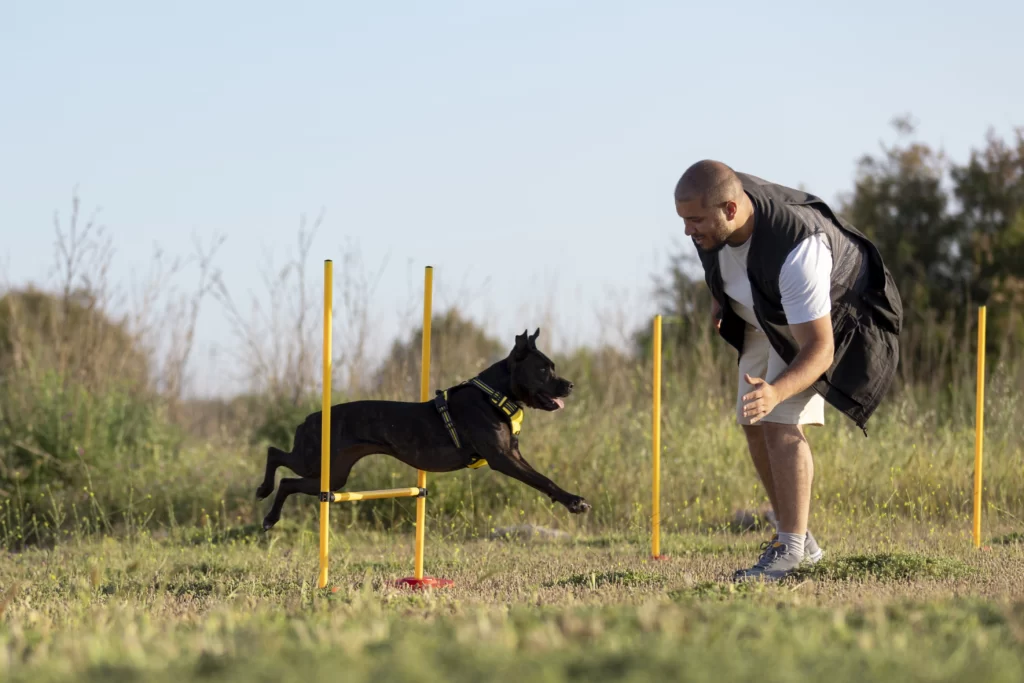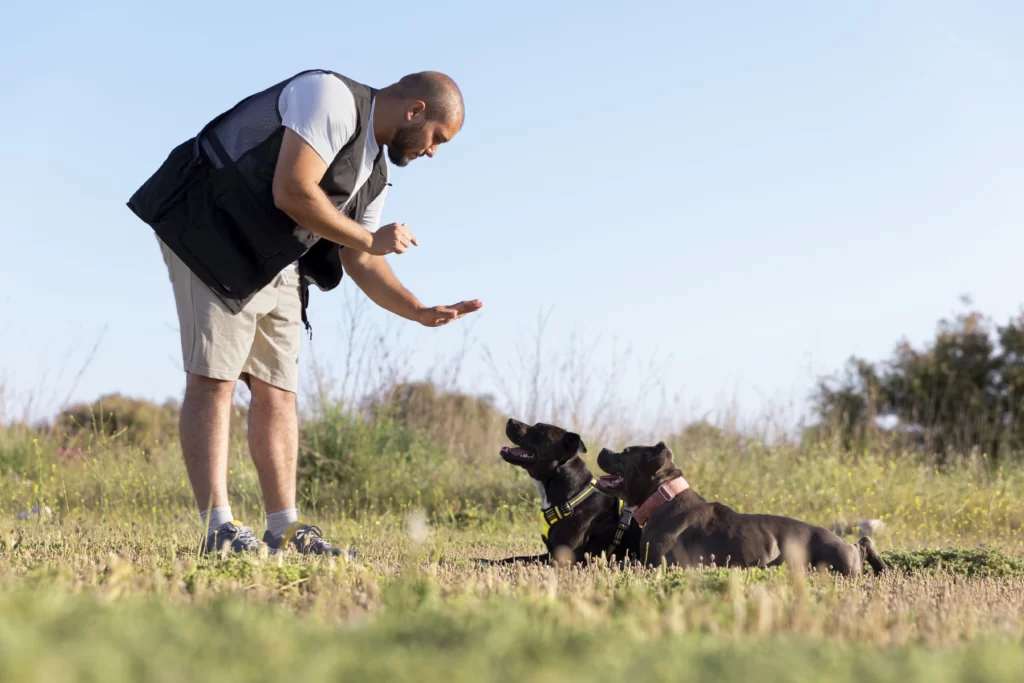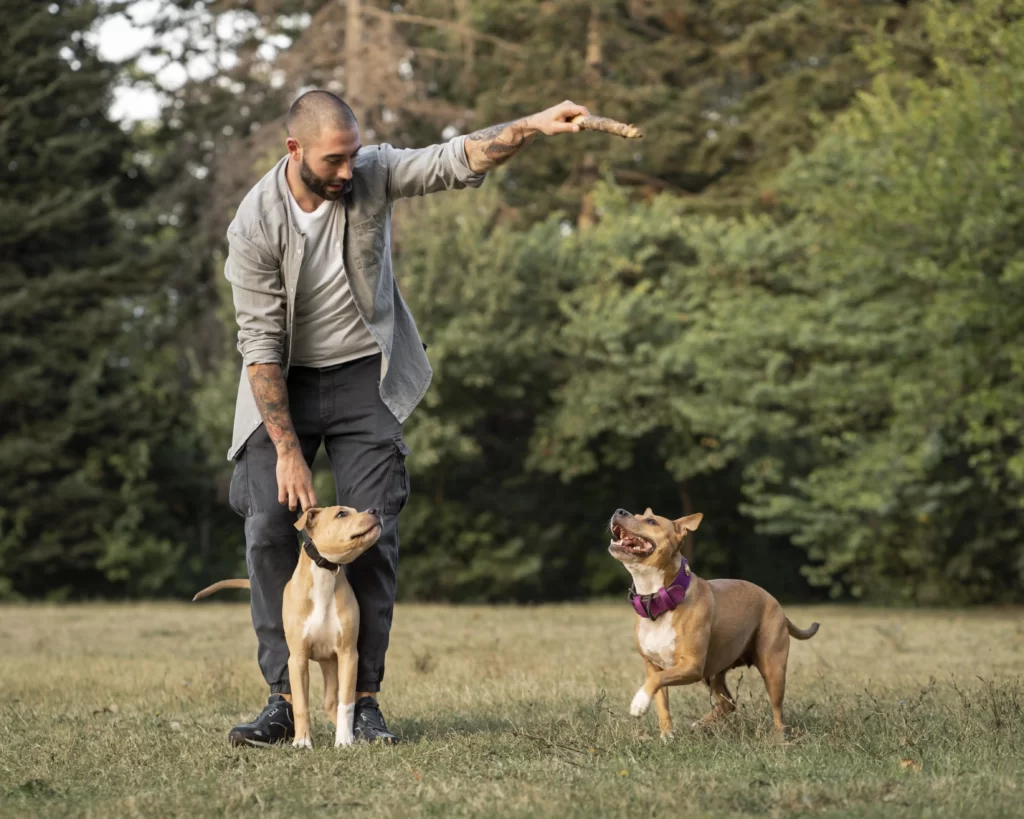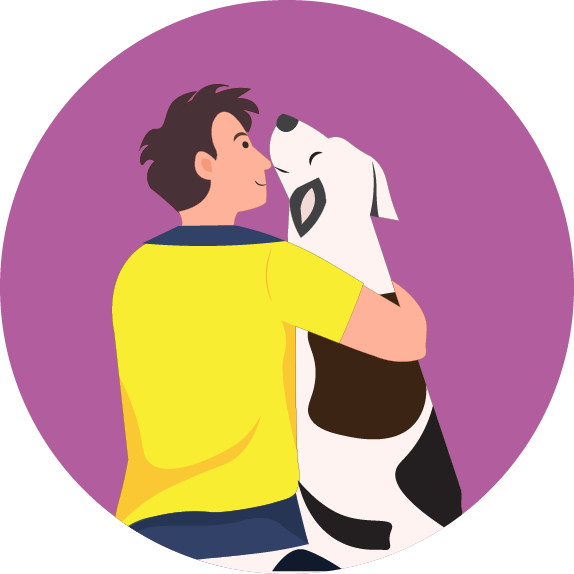Socializing Your Puppy: The Importance of Early Dog Training
Table of Contents
- Introduction
- Importance of Dog Training
- Why Socialize Your Dog
- Effective Methods for Training Your Furry Friend
- Self-train or Hire a Professional Trainer
- What are your qualifications and credentials?
- What are your methods and techniques?
- What are your references and testimonials?
- FAQ
- Conclusion
Introduction
If you have a new puppy, you might wonder how to train them and make them a well-trained-behaved and friendly family member. You might have heard of “socialization” and how it is essential for your puppy’s development. But what exactly is socialization, and why is it so important? How can you socialize your puppy effectively, and what are the best methods to do so? Should you train your puppy yourself or hire a professional trainer? In this article, we will address these questions and more. We will also provide tips and resources to help you with dog training and socialization.
Importance of Dog Training
Dog training teaches your dog to perform certain behaviours in response to your commands or cues. Dog training can help you communicate with your dog, establish a bond with them, and prevent or correct unwanted behaviours. Some of the benefits of dog training are:
1]Increased Confidence: A well-trained dog is more confident and less likely to be fearful or anxious in new situations.
2]Improved Behaviour: A well-trained dog is more likely to have proper manners and be well-trained and well-behaved around other people and animals.
2]Increased Adaptability: A well-trained dog is more adjusting to changes in their environment and can handle learning experiences better.
3]Better Health: Well-trained dogs are less likely to develop behavioural issues, which can lead to stress and other health problems.
4]Increased Quality of Life: A well-trained dog can enjoy a wider variety of experiences and activities, leading to a more fulfilling life.

Why Socialize Your Dog
Socialization is exposing your dog to different people, animals, environments, and situations in a positive and controlled way. Socialization helps your dog understand how to interact with the world around them. Socialization is essential for puppies, as they have a critical socialization period between 3 and 14 weeks of age, during which they are more open to learning experiences and less likely to develop fear or anxiety about new things. Some of the benefits of socialization are:
Prevention of Behaviour Problems: Socialization can prevent your dog from developing fear, aggression, or separation anxiety later in life. These behaviour problems are the leading cause of death for dogs under three years of age.
Development of Appropriate Manners: Socialization can help your dog learn to behave appropriately in different settings and around different people and animals. This can prevent conflicts, injuries, or complaints from others.
Encouragement of Respect for Other Animals: Socialization can help your dog learn how to respect other animals’ boundaries and signals. This can prevent fights, injuries, or diseases from other animals.
Enhancement of Happiness: Socialization can help your dog enjoy interacting with different people and animals. This can increase their happiness and well-being.
Effective Methods for Training Your Furry Friend
There are many methods and techniques for dog training, but not all of them are effective or humane. Some methods rely on force, fear, or pain to control your dog’s behaviour, which can cause physical or psychological harm to your dog. These methods include:
Choke Collars: These metal chains tighten around your dog’s neck when you pull on them. They can cause injury to your dog’s throat, spine, or eyes.
Prong Collars: These are metal collars with spikes that dig into your dog’s neck when you pull on them. They can cause injury to your dog’s skin, nerves, or blood vessels.
Shock Collars: These electronic devices deliver an electric shock to your dog’s neck when you press a button. They can cause injury to your dog’s skin, heart, or brain.
Alpha Rolls: These techniques involve pinning your dog down on their back and holding them there until they submit. They can cause injury to your dog’s spine, ribs, or organs.
Hitting, Kicking, or Yelling: These involve using physical or verbal violence to punish your dog. Such methods can cause injury to your dog’s body, mind, or emotions.
These methods are not only cruel and harmful but also ineffective and counterproductive. They can damage your dog’s trust, confidence, and bond with you. They can also increase your dog’s fear, anxiety, or aggression, leading to behaviour problems.
Positive reinforcement is the most effective and humane method for training your dog. Positive reinforcement involves rewarding your dog for exhibiting desired behaviours. Rewards can include treats, toys, praise, or attention. Positive reinforcement can help you:
- Motivate Your Dog: Rewards can make your dog more eager and willing to learn and behave as you want.
- Strengthen Your Bond: Rewards can make your dog associate you with positive feelings and experiences, enhancing your relationship with them.
- Build Confidence: Rewards can make your dog feel good about themselves and their abilities, boosting their self-esteem and confidence.
- Reduce Stress: Rewards can make your dog feel relaxed and happy, lowering their stress levels and improving their health.

Some tips for using positive reinforcement are:
- Be consistent: Reward your dog every time they perform the desired behaviour, especially in the beginning stages of training. This will help them learn faster and more reliably.
- Be timely: Reward your dog immediately after they perform the desired behaviour, preferably within one second. This will help them associate the positive experience with the behaviour more clearly.
- Be specific: Reward your dog only for the exact behaviour you want, not for any other conduct that might occur before or after. This will help them understand what you want more precisely.
- Be varied: Reward your dog with different rewards, such as treats, toys, praise, or attention. This will help them stay interested and motivated.
- Be gradual: Reward your dog with smaller rewards for easier behaviours and high-value rewards for more complex behaviours. This will help them progress and challenge themselves.
Self-train or Hire a Professional Trainer
Dog training can be a wonderful and rewarding experience for you and your dog. However, it can also be challenging and frustrating at times. You might encounter some difficulties or obstacles that require more guidance or assistance. Consider hiring a professional dog trainer to help you with your dog’s training.
A professional trainer has the knowledge, skills, and experience to train dogs effectively and humanely. A professional trainer can help you:
- Assess Your Dog’s Needs: A professional trainer can evaluate your dog’s personality, temperament, learning style, and behaviour problems. They can then design a customized training plan for your dog’s needs.
- Teach You How To Train: A professional trainer can teach you the fundamental principles and techniques of positive reinforcement training. They can also demonstrate how to apply them in different situations and scenarios.
- Provide Feedback and Support: A professional trainer can observe your dog’s behaviour and performance during training sessions. They can then provide feedback on what you are doing well and what you need to improve. They can also offer support and encouragement when you face challenges or difficulties.
However, hiring a professional trainer also has some drawbacks, such as:
Cost: Hiring a professional trainer can be expensive, depending on the type, duration, and frequency of the training sessions. You might also need to pay for travel expenses, equipment, or additional fees.
Availability: Hiring a professional trainer might be challenging or convenient, depending on the location, schedule, and demand of the trainer. You may have to wait a long time before booking a session or finding a suitable trainer near you.
Quality: Hiring a professional trainer might not guarantee quality results, depending on the qualifications, credentials, and reputation of the trainer. You might encounter trainers who use outdated, ineffective, or harmful training methods.
Therefore, before hiring a professional trainer, you should research and ask some questions to ensure they are reliable and trustworthy. Some of the questions you should ask are:
What are your qualifications and credentials?
It would be best to look for trainers with formal education or certification in animal behaviour or training. It would help to look for trainers with memberships or affiliations with reputable organizations such as the Association of Professional Dog Trainers (APDT) or the International Association of Animal Behaviour Consultants (IAABC).
What are your methods and techniques?
It would be best to look for trainers who only use positive reinforcement methods and techniques. You should also look for trainers who explain their methods clearly and logically.
What are your references and testimonials?
You should look for trainers with positive reviews and feedback from their previous or current clients. It would be best to look for trainers who can provide you with contact information for their references or testimonials.

FAQ
Here are some frequently asked questions about socializing your puppy and the importance of early dog training.
When should I start socializing and training my puppy?
It is desirable to start socializing and training your puppy as soon as possible, preferably when you bring them home. The earlier you start, the easier and more effective it will be.
How long should I socialize and train my puppy?
You should continue socializing and training your puppy throughout their life, especially during their first year. The first year is crucial for your puppy’s development and learning.
Where should I socialize and train my puppy?
You should socialize and train your puppy in various places, such as your home, neighbourhood, friends’ or relatives’ homes, parks, pet stores, vet clinics, etc. It would help if you exposed your puppy to different sights, sounds, smells, textures, and tastes.
Who should I socialize and train my puppy with?
You should socialize and train your puppy with different people and animals, such as family members, friends, neighbours, strangers, children, adults, seniors, dogs, cats, and birds. It would be best to introduce your puppy to people and animals of different ages, genders, sizes, shapes, colours, and personalities.
What should I do if my puppy is scared or aggressive during socialization or training?
You should never force your puppy to interact with something or someone that they are afraid of or dislike. You should respect your puppy’s feelings and comfort level. You should also never punish your puppy for showing fear or aggression. Instead, it would help if you used positive reinforcement to reward your puppy for showing calmness and curiosity. You should also consult a professional trainer or a veterinarian if your puppy’s fear or aggression is severe or persistent.
Conclusion
Socializing your puppy and training them early is one of the best things you can do for them and yourself. It can help you prevent behaviour problems, teach appropriate manners, encourage respect for other animals, and enhance happiness. It can also help you motivate your dog, strengthen your bond, build confidence, and reduce stress. The most effective and humane method for training your dog is positive reinforcement. You may also hire a professional trainer for more guidance or assistance.
We hope this blog post has helped you understand the importance of socializing your puppy and the benefits of early dog training. If you have any questions or comments, please feel free to contact us or comment below. Thank you for reading!







